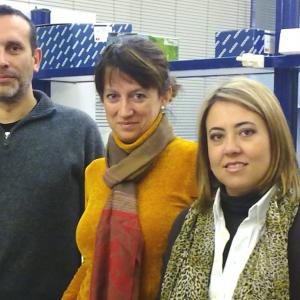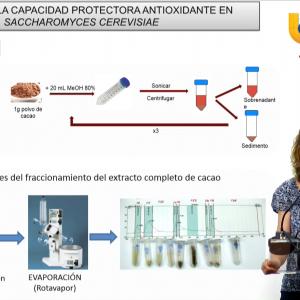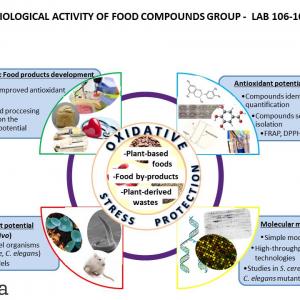
Biography
Dr. MT Fernández-Espinar graduated with a BSc in Biological Sciences from the University of Navarra (UNAV, Spain) in 1987 and earned an MSc in Food Science and Technology from the Polytechnic University of Valencia (UPV, Spain) in 1989. She completed her PhD in 1994 at the Institute of Agrochemistry and Food Technology (IATA-Valencia), focusing on fungal enzymes with applications in the agro-food sector. She then undertook a two-year postdoctoral fellowship with the "Molecular Genetics and Improvement of Edible Fungi" group at INRA (Bordeaux, France), investigating molecular mechanisms controlling the fructification of edible fungi, independent of external factors.
In 1997, she joined the Molecular Microbiology of Industrial Microorganisms Group at IATA-CSIC, focusing on development and application of molecular techniques for the identification and characterization of beneficial yeasts with industrial relevance, as well as food spoilage yeasts. Additionally, she developed new molecular tools to monitor the implantation of inoculated yeasts in controlled industrial fermentations.
In 2004, she became a Tenured Scientist at CSIC in IATA (Valencia), launching a new research line focused on the pathogenic potential and mechanisms of pathogenesis in food-related yeasts using both in vitro and in vivo approaches. By 2010, she joined the Biological Activity of Food Compounds Group at IATA, applying her expertise in microbiology to develop and utilize in vivo methodologies based on simple organisms—specifically yeasts—as rapid systems to screen the biological effects of plant extracts under various stress conditions. Her work also delved into the molecular mechanisms driving these effects. During this time, she also established a collaboration with the IATA Cereals Group to improve the antioxidant properties of cereal-based products.
Currently, she is part of the Non-Conventional Yeasts Group at IATA, where she focuses on the microbiology of fermented meat products to enhance their aromatic quality. She is also exploring the potential of lactic acid bacteria, non-conventional yeasts, and fungi to produce aromas of interest for the food industry. Her research combines traditional microbiological and molecular biology techniques for isolating bacteria and fungi with advanced methods such as massive sequencing to study the entire microbiota involved in fermentation processes.
Projects
Publications
Gil JV, Esteban-Muñoz A, Fernández-Espinar, M.T. (2022). Changes in the Polyphenolic Profile and Antioxidant Activity of Wheat Bread after Incorporating Quinoa Flour. Antioxidants. 11(1): 33. DOI: 10.3390/antiox11010033
Peláez-Soto, A., Roig, P., Martínez-Culebras, P.V., Fernández-Espinar, M.T., Gil, J.V. (2020) Proteomic Analysis of Saccharomyces cerevisiae Response to Oxidative Stress Mediated by Cocoa Polyphenols Extract. Molecules. 25(3): 452. DOI: 10.3390/molecules25030452
Ballester-Sánchez, J., Jose Vicente Gil, Claudia Monika Haros, María Teresa Fernández-Espinar. (2019). Effect of incorporating white, red or black quinoa flours on free and bound polyphenol content, antioxidant activity and colour of bread. Plant Food for Human Nutrition. DOI:10.1007/s11130-019-00718-w
Peláez-soto, A.; Fernández-Espinar, M.T.; Roig, P.; Gil, J.V. (2017). Evaluation of the ability of polyphenol extracts of cocoa and red grape to promote the antioxidant response in yeast using a rapid multiwell assay. Journal of Food Research. 82: 324-332. Doi: 10.1111/1750-3841.13602.
Llopis, S., Hernández-Haro, C., Monteoliva, L., Querol, A., Molina, M., Fernández-Espinar, M.T. (2014). Pathogenic potential of Saccharomyces strains isolated from dietary supplements. PLoS ONE 9(5): e98094. doi:10.1371/journal.pone.0098094.




